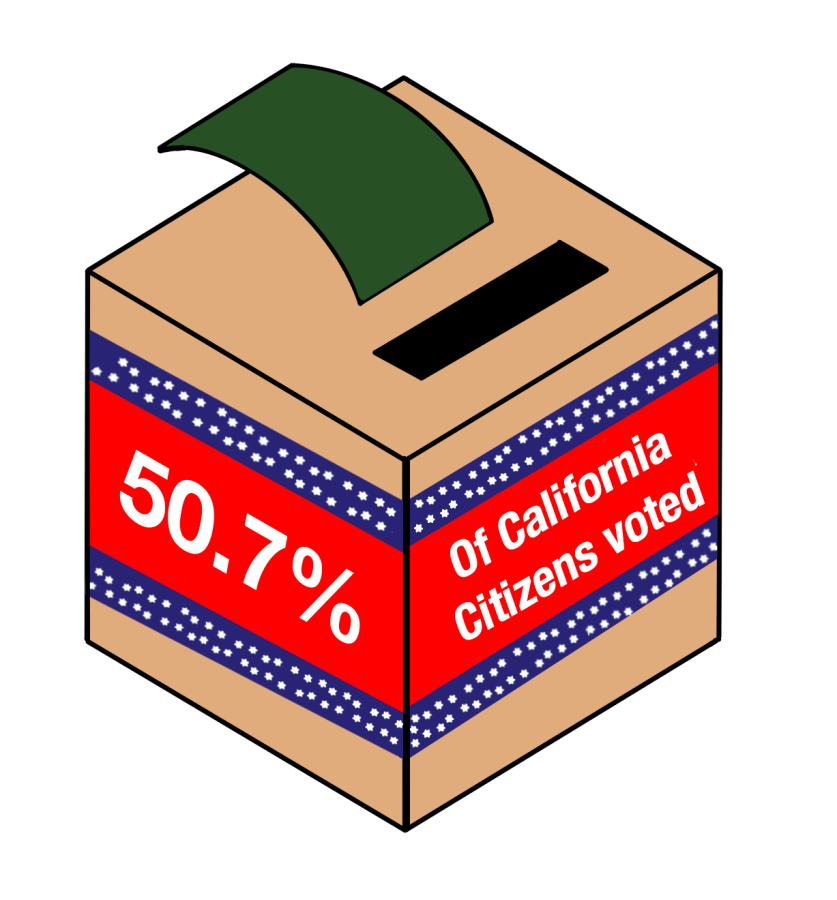Results from the 2022 midterm election
Lilly Wu, Anushka Anand, Daeun Chung
50.7% of California citizens voted in the 2022 general midterm elections. Graphic illustration by Lilly Wu, Anushka Anand and Daeun Chung
December 12, 2022
The House
The 218th seat — which, once occupied, determines a party’s control of the House — was taken by the Republican party on Nov. 16. With a margin of just eight seats, Democrats have lost to the Republicans 213-221. Democratic Speaker Nancy Pelosi stepped down, giving way to Republican majority leader, Kevin McCarthy.
The Senate
Democrats control the Senate with 51 seats, maintaining a majority after Sen. Rafael Warnock narrowly beat Herschel Walker in the Georgia runoff election. Additionally, any court justice nominated by President Joe Biden would have an extra layer of support from Democrats. Calif. anticipates a more progressive future.
Proposition 1: passed
While abortion is legal in Calif., Proposition 1 safeguards it in the state constitution, enforcing a woman’s right to choose. Proponents described women’s reproductive rights as the defining issue of this year’s midterms— one that determines the prosperity of many in the nation. “This is monumental for Calif.’s political and state history because it allows the state legislature to pass many of Newsom’s progressive ideas,” senior Akul Murthy said. “Stringent political issues can be further swayed by our large blue wave.” 69% of voters favored the proposition.
Proposition 28: passed
For decades, STEM and the humanities surpassed the arts in public school funding. Proposition 28 sets aside $1 million for public schools to fund arts education. School districts must spend 80% of received funds on staff and 20% on supplies and arts education. “In schools like Lynbrook, kids tend to avoid pursuing the arts,” junior Ayanna Beberg said. “Hopefully this proposition will promote a more welcoming school community.” 64.4% of voters favored the proposition.
Proposition 31: passed
Proposition 31 aims to regulate tobacco consumption and sales by banning flavored tobacco products. It proposes issuing $250 fines for violations and raising state taxes on tobacco to fund healthcare programs. The proposition will make it illegal for most stores to sell flavored tobacco and flavor enhancers, reducing tobacco sales by about $100 million. “It’s great that this bill promotes reducing vaping and smoking since it’s common among youth,” junior Anshul Singh said. 63.6% of voters favored the proposition.


































































